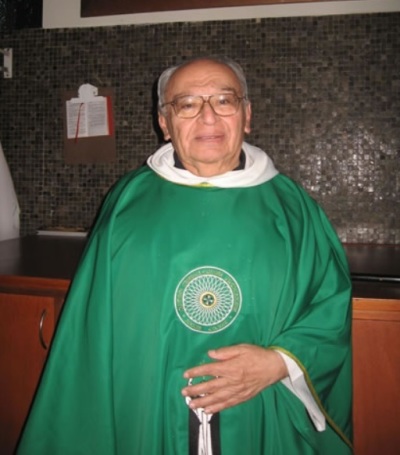Gustavo Gutierrez, champion of Liberation Theology, dies at 96

Gustavo Gutierrez, the Peruvian Catholic priest and professor credited with launching the influential and controversial Liberation Theology movement, has died at the age of 96.
Orbis Books, which released the English translation of Gutierrez’s A Theology of Liberation in 1973, announced that the priest had died in Lima, Peru, on Tuesday, following a long illness.
“Gustavo was not only the ‘father’ of liberation theology, but truly the cornerstone of the Orbis program,” the publisher said. “In 1973 we published the English translation of A Theology of Liberation, which Christianity Today named as one of the 100 most important theological works of the twentieth century.”
“This inaugurated a whole program of works by the greatest generation of Latin American theologians: Gustavo himself, Jon Sobrino, Jose Combin, Leonardo Boff, and many others.”
While noting that Gutierrez was a bestselling author of multiple books, Orbis stressed that “his influence of course is not measured by sales alone.”
“Apart from his historic contributions to the Church in Latin America and the emergence of liberation theology, his work, and the theology he inspired, fundamentally transformed the work of theology in North America and throughout the world,” the publisher continued.
“It is felt not only in the church's embrace of the ‘preferential option for the poor,’ but in the many schools of contextual, post-colonial, and liberation theologies that have emerged throughout the world.”
Many individuals posted their condolences on social media, among them progressive activist and United Church of Christ clergyman the Rev. Chuck Currie, who said Gutierrez “brought me back to Christianity.”
“When I was a teenager in the late 1980s, I left Christianity for Unitarianism. The Unitarian minister at the church I landed at asked why I made the switch, and my answer was that Christianity was too aligned with the religious right,” stated Currie.
“For Gustavo Gutiérrez, following Jesus meant working to end poverty and oppression. I took this lesson to heart, and I encourage everyone to read his books. May his memory be a blessing.”
Born in Lima in 1928, Gutierrez became a member of the Dominican Order and studied medicine and literature, eventually earning a doctorate at the Institut Pastoral d’Etudes Religieuses (IPER), Université Catholique in Lyon, France.
In 1971, Gutierrez’s seminal work, A Theology of Liberation, was first published, advancing a theological outlook that emphasized helping the poor and the oppressed.
“According to Gutiérrez, true ‘liberation’ has three main dimensions: First, it involves political and social liberation, the elimination of the immediate causes of poverty and injustice. Second, liberation involves the emancipation of the poor, the marginalized, the downtrodden and the oppressed from all ‘those things that limit their capacity to develop themselves freely and in dignity,’” explained the website Liberation Theology Resources.
“Third, liberation theology involves liberation from selfishness and sin, a re-establishment of a relationship with God and with other people. Liberation theology and Gutiérrez have both been the subjects of repeated Papal scrutiny.”
Gutierrez’s theological outlook has been the source of much debate within and without the Roman Catholic Church, with the priest receiving much support for his ideas within Latin America.
It would also spread into different spheres, with a variation known as Black Liberation Theology being developed in the United States and championed by the Rev. Jeremiah Wright, pastor emeritus of Trinity United Church of Christ in Chicago, whose services were attended by former President Barack Obama.
The movement is not without its critics, as many have argued that Liberation Theology is too heavily influenced by Marxism and downplays the importance of miracles and eternal salvation.
Michael Novak, resident scholar in religion, philosophy and public policy at the American Enterprise Institute, wrote in a 1984 column that Liberation Theology suffers from “the absence of a concrete vision of political economy.”
“It refuses to say how safeguards for human rights, economic development and personal liberties will be instituted after the revolution. Liberation theology appears to trust its own fervent Christianity as a sufficient brake on tyranny. This is naivete,” wrote Novak at the time.
“To the skeptical eye, liberation theology for all its good intentions promises a mirror image of the Latin American authoritarian societies of the past, but this time of the left rather than of the right. Once again, economic decisions will be state-controlled. Once again, many theologians will identify Christianity with the Latin American state.”




























